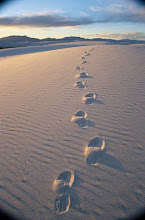

I recently received an email from one of my professors encouraging us to not miss the opportunity to learn more about the priesthood in this the designated "Year for Priests" by attending the upcoming Word of God Conference. As I read his post two things made an impression on me; (1) the designated year for priests has not been embraced with the fervor shown the designated Year of St. Paul. He was correct in his post that this year is more about learning about the ministerial priesthood than it is about praying for vocations, which should be done as well. Secondly as Catholics we don't always embrace the opportunities given to us to learn about the Sacred Traditions of our faith.
I am impressed, I must admit when someone shares with me they read their bible regularly at home, usually at night prior to bedtime. I have to say, my parents were avid readers but they did not read the bible and we were protestants. But if I were to ask that same person if they read something out of the Catechism of the Catholic Church, or if they knew the Church's teaching on immigration, let's say, they might stumble for the correct words or give me the more popular secular view on immigration. Never more as this come to my attention than recently with the discussion on abortion. Remember as Catholics we are not "sola scriptura" but we have a teaching authority, the Magisterium, and much of this teaching is based on Sacred Tradition handed down in a deposit of faith that has been kept for over 2000 years.
Catholics identify themselves as Catholic because they were baptised Catholic, attend a Catholic Church and receive Holy Communion, although it's debatable as to whether they believe in the true presence of Christ in the Eucharist. For many, this is as far as their identity with the Catholic faith goes. We are losing our identity as Catholics because too many don't understand what the Church teaches and then when told or instructed don't accept the teaching because it doesn't go along with the main stream secular way of life they are living. Yes we all have a hard time swallowing the truth from time to time because our pride gets in the way, it's not what we want to hear. Yet if we claim to be one body in Christ, one Church, then that truth pertains to us as Catholic Christians.
My new go-to-book is the Compendium of the Catholic Church's Social Doctrine. In this day and age of politics, economics, health care and immigration it is our responsibility as Church to know what the Church teaches and the basis for that teaching. Also timely is Pope Benedict XVI's new encyclical "Caritas in Veritate". We are Catholics because we believe in the teaching of Christ and because He gave that teaching authority to the Apostles to continue His misssion. We are the Body of Christ, we must live as the Body of Christ, doing His work and continuing the Mission.



